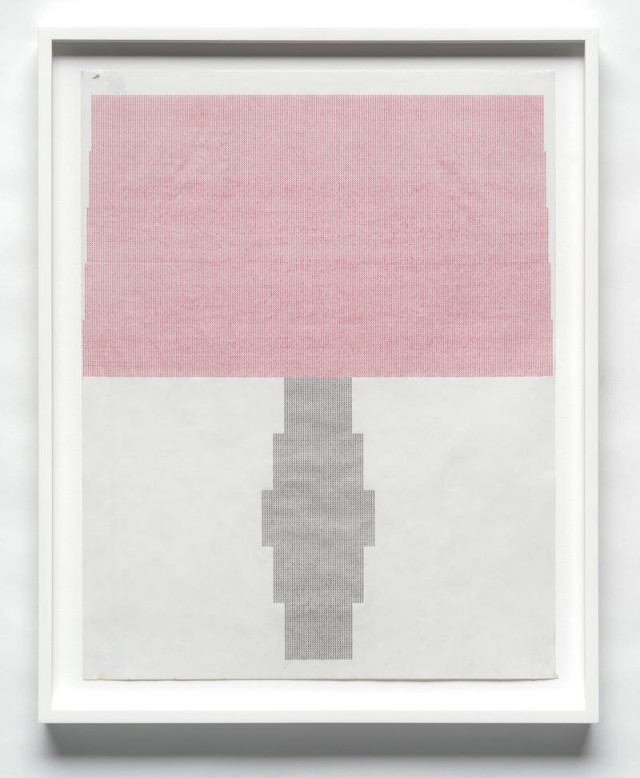
THE DAILY PIC (#1486): Art can make you smart, teaching you to notice things you might not have before, and to think deeper and better about them. It can also make you dumb, introducing a thick cultural filter between you and normal awareness. The latter, I have to admit, was the case with me when I first looked at this 1985-86 work by the artist and author Christopher Knowles, best known as a longtime collaborator of the theater director Robert Wilson. I came across my Pic by Knowles, and a few other pieces like it, in the 10th annual exhibition at White Columns art space in New York, assembled by the curator Matthew Higgs. (I’m proud to say that three of Higgs’s choices had already appeared in this column.) Knowles’s work immediately reminded me of the earliest experiments in computer-generated abstraction, just then underway by artists such as Manfred Mohr, combined with a whiff of red-and-black Russian constructivism. What I couldn’t see – mild guffaws only, please – is the fact that Knowles’s piece is actually a straightforward image of a table lamp, “typed out” in endless rows of the letter “c” in red and black.
Or maybe my mistake points to something interesting, or at least less dumb: As it hovers perfectly between representation and its opposite, Knowles’s piece literalizes the old, twin ideas that all abstraction descends from reality, and that reality is built on an abstract base. You could also argue that Knowles’s Lamp gets at the gap between language and thing, using the letters that stand for the former to build an image that points to the latter. Knowles’s characters don’t spell the word “lamp” and his picture doesn’t quite image one, either. Pointing at the world, with words or images, is harder-won than we realize. Sometimes, it requires a “c”-change in perception. (Courtesy the artist and Gavin Brown’s enterprise, New York)
For a full survey of past Daily Pics visit blakegopnik.com/archive.